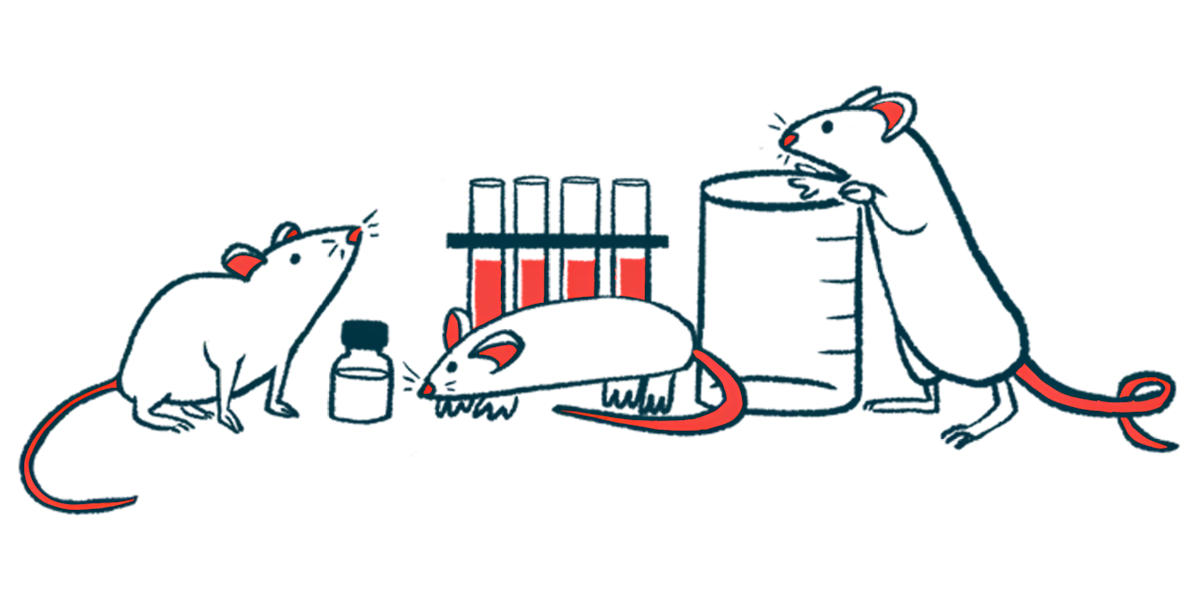ARGX-119 may aid muscle strength in some people with MuSK MG
Researchers: Lab tests may detect who's most likely to benefit from treatment
Written by |

Treatment with ARGX-119, an experimental therapy being developed by Argenx, led to improvements in muscle strength and survival in a mouse model of myasthenia gravis (MG) driven by self-reactive antibodies that target the muscle-specific kinase (MuSK) protein, a study shows.
While the findings indicated ARGX-119 may ease symptoms of MuSK-related MG, this is not true for all cases. The researchers said lab tests may detect who is most likely to benefit from treatment.
The study, “Patient-specific therapeutic benefit of MuSK agonist antibody ARGX-119 in MuSK myasthenia gravis passive transfer models,” was published in iScience.
MG is an autoimmune disease wherein self-reactive antibodies disrupt the normal communication between nerve and muscle cells, resulting in symptoms of muscle weakness and fatigue. In some patients, MG is driven by autoantibodies that target MuSK, a protein that plays a key role in maintaining neuromuscular junctions, or the regions where nerve and muscle cells meet to coordinate muscle movements.
ARGX-119 is an antibody that’s designed to act as an agonist, or activator, of MuSK to improve nerve-muscle communication and enhance muscle strength.
“This means that we can turn the MuSK signal ‘on’ or ‘off’ ourselves which can strengthen or weaken the communication between nerve and muscle and enable the muscles to function better again. This has the potential to treat other muscle diseases in which the communication between nerve and muscle is disturbed,” Maartje Huijbers, PhD, the study’s lead author at Leiden University Medical Center, said in a university news story. “We are aiming to preserve function of the contact between nerve and muscle for longer. If you can make those ‘talk’ to each other longer, that could theoretically contribute to making that nerve and muscle live longer and to longer preservation of muscle strength.”
A benefit to some MuSK MG patients
Researchers at Argenx and other institutions tested ARGX-119 in a mouse model of MuSK-related MG, which they created by collecting antibodies from patients with MuSK-associated MG and injecting them into the animals so they would develop a MG-like disease.
The tests used antibodies from four MG patients. Treatment with ARGX-119 led to improvements in muscle strength and survival in mice that had received antibodies from one patient, but it didn’t affect the mice given antibodies from the other three, the results showed.
Also, the ability of ARGX-119 to activate MuSK required a very specific dose range. If the dose was too high or too low, ARGX-119 couldn’t effectively activate MuSK. Even after adjusting for optimum dosing, the therapy was only effective in mice given antibodies from one of the patients.
It’s possible ARGX-119 wasn’t working in some patients because, in those patients, the disease-driving antibodies were binding to parts of the MuSK protein that ARGX-119 is designed to interact with to exert its therapeutic effects. Later experiments suggested this wasn’t the case, however. Instead, data suggested that, in some patients, the disease-driving antibodies were actually activating MuSK to some degree and this paradoxically made it more difficult for ARGX-119 to properly activate the protein.
“Lack of efficacy of ARGX-119 observed with three of our MuSK MG patient [antibodies] in the MuSK MG passive transfer mouse models could not be explained by direct competition for binding with ARGX-119, but rather seems related to a fraction of … MuSK … antibodies which are capable of inducing significant amounts of MuSK [activation],” the researchers wrote.
In further tests using cells in dishes, ARGX-119 was able to activate MuSK in the presence of antibodies from the first patient, but not the other three, mirroring the results in mice. This suggests that, while ARGX-119 may not be effective in all patients, it might be possible to do relatively straightforward lab tests to figure out who is most likely to benefit from it.
“Further validation of the assay with clinical responses will be required for future clinical application,” the researchers wrote.



Leave a comment
Fill in the required fields to post. Your email address will not be published.